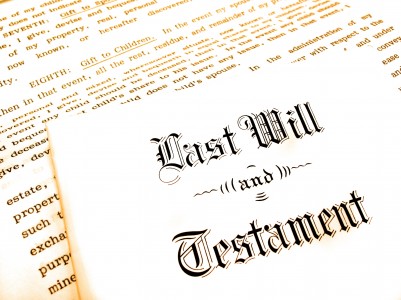When working to trace family trees, it commonplace for a family genealogist not to find the information they are looking for in a specific ancestor search. A genealogist may tap a number of records for a particular ancestor search, however, in the event a family history researcher does not find the desired information within a particular resource, they are going to run smack dab into a brick wall. That’s not good, but what is good is the fact that there is more to the ancestor search process than birth, marriage, death, and land records housed at the courthouse. Another wellspring of ancestor research information exists in will and probate records, which also give valuable insight into a family. That is where this story begins.
I have a great-great Uncle Joe. An older brother of my great grandfather James, Joe is easy to forget. Born in 1846, he saw service in the Civil War; however, his military record is mostly “pay records.” He married “Sarah” in 1868 in New York, and the couple moved to Nebraska around the same time as Joe’s parents, Luke and Margaret, homesteading in 1870. The homestead records provide basic information – nothing exceptional. Joe and Sarah had no children. Sarah died in late 1883, and Joe died in March of 1884, which was reported in the Wahoo Independent on March 27, 1884:
“(Joe) was an old resident of the county and highly respected by those who were acquainted with him. He served in war and was a brave soldier – always doing his duty. He lost his wife about six months ago and this loss deeply affected him. He leaves some relatives.”
It was a sad situation, but not unusual, considering the time and place.
Then there is the will. When I first saw Joe’s probate packet in the courthouse, it looked like it had not been touched since the estate had been settled well more than 100 years ago. A ribbon around the packet was neatly tied, and the pages were yellowed with time. The first document was the will. It was signed on the 20th of March. Joe died on the 21st. In many ways, the will seemed to be standard – money and property were left to surviving family members – but it turned out to be much more.
Joe’s parents, Luke and Margaret, had a falling out and separated. In the will, Joe left a token amount of money to his father and other family members. To his mother he gave “…the use and proceeds of all my property both personal and real during her natural life…” That’s the will. Then, there is the probate. The family and court settled the estate. In Joe’s case I found out:
- Joe was a partner in a store. Receipts and debts had to be collected, paid, and tallied, so the partner could receive his fair share of the proceeds.
- Margaret was living in Kansas during the probate and didn’t really want to move back to Nebraska.
- James, who was living in Nebraska, desired to take over Joe’s farm. Family members got together and agreed to transfer Joe’s homestead to James.
It is a good story, and one any family history researcher would love to find. It’s also a lesson well learned – don’t just stop with the will – delve deeper into probate records, and you have a good chance of uncovering additional gems of information pertaining to your ancestor search. It has also been several years since I got the probate packet. I looked at it the first time, got the information I needed, put it back in the file folder, thinking that I was done with it – until something else came up. I looked at it again, finding a date or fact I had missed before. This has happened several times. I even transcribed parts of the probate to save on reading old handwriting.
The good news for genealogists is that accessing probate records is becoming easier. FamilySearch has a few counties available online and more on microfilm that can be borrowed through a Family History Center. Some states have digitized at least some of the records for courthouse use. The method for accessing probate records can vary from state to state. To make things easier for family history researchers, wills and probates are usually indexed, and except for rare circumstances, are open to the public. They are typically found at a lower court, such as the county court level.
There are some things a family historian should keep in mind when looking for a will or probate:
- In order have a probate, there has to be an estate. Often, if there is a probate, real estate is involved. If the deceased did not own much, the family rarely probated the estate.
- If a person dies intestate without a will, but has an estate, there are court procedures for handling the matter.
- If a person dies intestate, has an estate, but items of value, such as land or business, are jointly owned with another person, such as a spouse, there may not be a probate, because the land or business will automatically go to the other individual.
- Usually, the probate is handled in the county where the deceased was a resident.
Genealogists can find a wealth of interesting information in probates, because although they can be settled in short order, they sometimes drag on for many years; and because they are court documents, each item dealt with in court is dated chronologically. Family members and their place of residence may be listed, so the genealogist can follow a family by noting deaths, name changes, and in some cases, the names of siblings, children, grandchildren, nieces or nephews.
The professional genealogists at RecordClick have experience in finding and working with court documents, such as wills and probates, to help genealogical researchers with their ancestor search. If family history researchers need ideas on other ways to conduct their ancestor search, where to look , or help in obtaining records, consider RecordClick as your premier genealogy research service. RecordClick can help you trace family trees.







